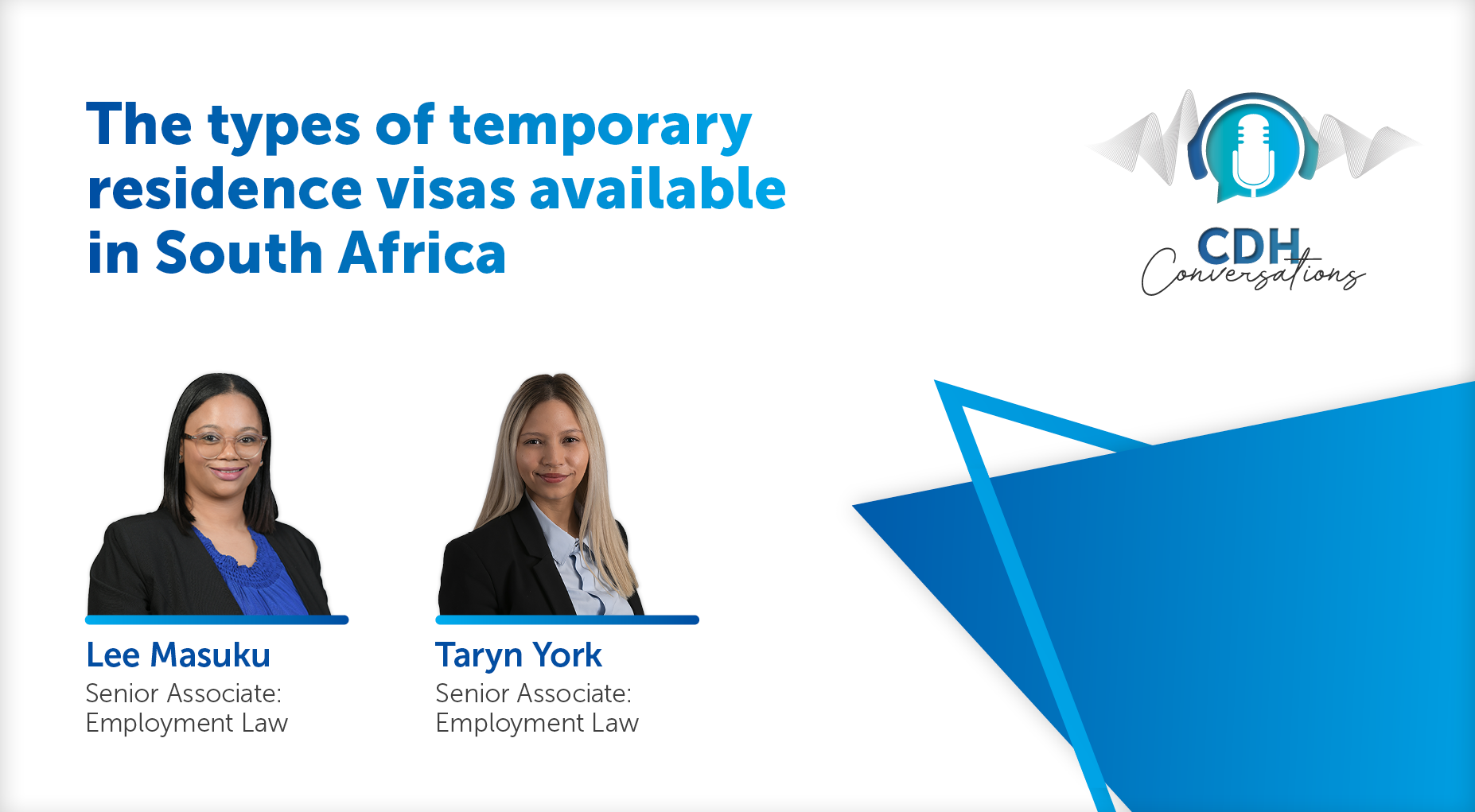Sexual harassment in the workplace - disciplinary action alone is not enough
In terms of the Employment Equity Act, No 55 of 1998 (EEA) harassment of an employee is a form of unfair discrimination and is prohibited. The Labour Appeal Court has characterised sexual harassment as “the most heinous misconduct that plagues a workplace” [Motsamai v Everite Building Products (Pty) Ltd [2011] 2 BLLR (LAC)].
Harassment triggers the following obligations under s60 of the EEA:
- The conduct must be brought to the attention of the employer immediately.
- The employer must consult all relevant parties and take the necessary steps to eliminate the harassment and comply with the provisions of the EEA.
- If the employer fails to take the abovementioned necessary steps and it is proved that the employee has breached the relevant provisions of the EEA, the employer must be deemed also to have breached the provisions of the EEA.
- An employer is not liable for the conduct of the employee if the employer is able to prove that it did all that was reasonably practicable to ensure that the employee would not act in breach of the EEA.
The above obligations were considered in a recent CCMA decision in which an employee’s request for a day off was granted by her manager, subject to her granting him sexual favours. The act of sexual harassment was not in dispute. What was in dispute was the liability of the employer, if any, for the supervisor’s misconduct. In relation to the obligations in terms of s60, the commissioner found as follows:
- The employee had discharged the obligation to notify the employer of the conduct immediately.
- The employer appreciated the seriousness of the conduct, advised the employee of the formal and informal approach that could be taken, followed the formal approach and convened a disciplinary hearing resulting in the supervisor being issued with a final written warning and removed from a position of authority over other employees.
- In addition, the employer had implemented a sexual harassment policy before the incident and had communicated the terms of the policy to its employees. It had also offered the employee assistance through the employee assistance programme. The employee was given time off to see a doctor and she was transferred to another department where she would not be required to work alone, as recommended by her doctor.
- Notwithstanding the above steps taken by the employer, the employer was found to have taken insufficient steps to avoid employer liability in terms of s60 of the EEA. As the EEA does not provide guidance as to what constitutes necessary steps to avoid this liability, the commissioner had regard to the Amended Code of Good Practice on the Handling of Sexual Harassment Cases in the Workplace issued in terms of the EEA (Code). The Code encourages employers to develop and implement policies and procedures that will lead to the creation of workplaces that are free of sexual harassment, where employers and employees respect one another’s integrity, dignity, privacy and equality. The commissioner found that the duty on the employer is both reactive and proactive. The commissioner found that notwithstanding the steps that the employer had taken, there appeared to have been a shift in the employer during the course of the disciplinary hearing, and that it appeared that the employer became more intolerant of the employee. By way of example, the employee asked for an apology, which the employer did not require the supervisor to give, on the basis that the supervisor had been sufficiently humiliated. The shift on the part of the employer was not explained by the employer.
- The commissioner found the employer liable for the conduct of the supervisor and compensated the employee for loss of dignity flowing from the unfair discrimination in the amount of R10,000.
Without pronouncing on the merits or otherwise of the case, the award is a clear warning to employers that taking disciplinary action against an employee who is accused of sexually harassing a fellow employee may not be sufficient and that proactive and reactive steps are necessary to avoid liability under s60 of the EEA. The EEA empowers a commissioner to make an appropriate award to give effect to the provisions of the EEA which may include payment of compensation, payment of damages and/or an order directing the employer to take steps to prevent the same or similar unfair discrimination from occurring in the future.
The information and material published on this website is provided for general purposes only and does not constitute legal advice. We make every effort to ensure that the content is updated regularly and to offer the most current and accurate information. Please consult one of our lawyers on any specific legal problem or matter. We accept no responsibility for any loss or damage, whether direct or consequential, which may arise from reliance on the information contained in these pages. Please refer to our full terms and conditions. Copyright © 2026 Cliffe Dekker Hofmeyr. All rights reserved. For permission to reproduce an article or publication, please contact us cliffedekkerhofmeyr@cdhlegal.com.
Subscribe
We support our clients’ strategic and operational needs by offering innovative, integrated and high quality thought leadership. To stay up to date on the latest legal developments that may potentially impact your business, subscribe to our alerts, seminar and webinar invitations.
Subscribe




